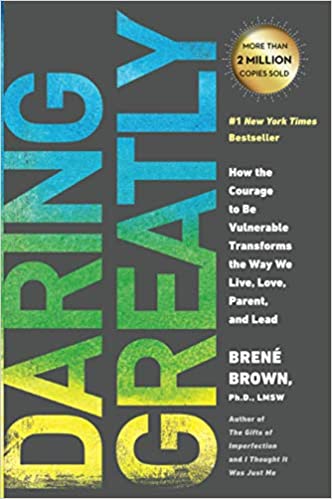Are you wearing a mask, hiding your true self from the world? Trauma can create a façade that conceals our authentic selves, leaving us feeling artificial and disconnected. In this article, we will explore five telltale signs that your trauma may be making you artificial.
First, have you noticed a persistent and overwhelming need to please others? Constantly seeking approval and validation can be a sign that you are trying to compensate for feelings of inadequacy caused by past trauma.
Second, do you struggle with self-expression and assertiveness? Trauma can leave us feeling silenced and unable to speak our truth, resulting in artificial behavior and a fear of authenticity.
Third, do you find it challenging to form and maintain authentic relationships? Trauma can erode trust and make it difficult to let others in, leading to superficial connections and a sense of isolation.
Fourth, are you constantly striving for perfection? Trauma can create an unrealistic desire for control and perfectionism as a way to mask underlying feelings of vulnerability.
Finally, do you feel like an imposter in your own life? Trauma can distort our perception of ourselves, leading to a constant fear of being exposed as a fraud.
If any of these signs resonate with you, it’s time to unmask the truth and reclaim your authentic self. Join us as we delve deeper into the impact of trauma and discover strategies for healing and self-discovery.

Daring Greatly
by Brene Brown
⏱ 13 minutes reading time
🎧 Audio version available
Understanding the concept of artificiality in relation to trauma
Trauma has a profound impact on our lives, and it can lead us to develop artificial behaviors and coping mechanisms as a way to protect ourselves. Artificiality in this context refers to the adoption of false personas, behaviors, and beliefs that are not aligned with our true selves. It is a defense mechanism that aims to shield us from further pain and vulnerability. However, living in an artificial state can prevent us from experiencing genuine connections, fulfillment, and personal growth.
Sign 1: Detachment from emotions and inability to connect with others
One of the signs that your trauma may be making you artificial is a sense of detachment from your emotions and an inability to connect with others on a deep level. Trauma can cause us to shut down emotionally as a way to protect ourselves from further harm. We may become numb or disconnected from our own feelings, making it challenging to form authentic relationships. This emotional detachment can lead to a sense of isolation and a lack of fulfillment in our interactions with others.
Sign 2: Constantly wearing a mask and presenting a false self to the world
Another sign of trauma-induced artificiality is the constant need to wear a mask and present a false self to the world. We may feel the need to hide our true thoughts, feelings, and vulnerabilities behind a carefully constructed facade. This can manifest as pretending to be someone we’re not, putting on a happy face when we’re struggling, or constantly seeking validation and approval from others. Living in this state of artificiality can be exhausting and prevent us from experiencing genuine connections and self-acceptance.
Sign 3: Inability to trust or form meaningful relationships
Trauma can erode our ability to trust others and make it challenging to form meaningful relationships. When we have experienced trauma, we may develop a fear of being hurt again, leading us to keep others at arm’s length. This can result in superficial connections and a sense of isolation. We may also struggle to open up and be vulnerable with others, fearing that our trauma will be used against us. This inability to trust and form deep connections can contribute to feelings of artificiality and a lack of authenticity in our relationships.
Sign 4: Seeking validation and approval from others to feel worthy
Constantly seeking validation and approval from others can be a sign that your trauma is making you artificial. Trauma can leave us with deep-rooted feelings of inadequacy and a lack of self-worth. As a result, we may seek external validation to feel worthy and accepted. This can manifest as constantly seeking approval, striving for perfection, or basing our self-worth on the opinions of others. Living in this state of artificiality can prevent us from developing a strong sense of self and hinder our personal growth.
Sign 5: Difficulty in expressing and processing emotions
Trauma can make it challenging to express and process our emotions in a healthy and authentic way. We may have learned to suppress our emotions as a means of survival, leading to difficulties in recognizing and expressing our true feelings. This can result in emotional numbness, outbursts of anger or sadness, or a general sense of feeling disconnected from ourselves. The inability to process and express our emotions authentically can contribute to a sense of artificiality and prevent us from fully embracing our true selves.
Related: How To Ignore People: Stay Focused and Unaffected by Negative People
The importance of seeking professional help for trauma-related artificiality
If you resonate with any of these signs, it’s essential to seek professional help to address the underlying trauma and its impact on your sense of authenticity. A qualified therapist can provide the guidance and support needed to navigate the healing process and rediscover your true self. Through therapy, you can learn healthy coping mechanisms, process unresolved emotions, and develop a deeper understanding of yourself and your experiences.
What Is Snapreads?

With the Snapreads app, you get the key insights from the best nonfiction books in minutes, not hours or days. Our experts transform these books into quick, memorable, easy-to-understand insights you can read when you have the time or listen to them on the go.